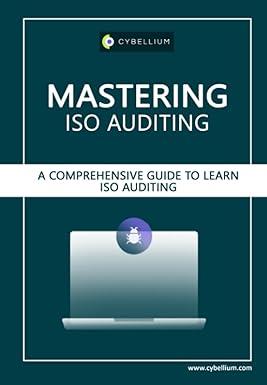Question
Fortune Lager has just purchased the Austin Brewery. The brewery is two years old and uses absorption costing. It will sell its product to Fortune
Fortune Lager has just purchased the Austin
Brewery. The brewery is two years old and uses absorption costing. It will "sell" its product to
Fortune Lager at $48 per barrel. Peter Bryant,
Fortune Lager's controller, obtains the following information about Austin
Brewery's capacity and budgeted fixed manufacturing costs for 2014:
| Budgeted Fixed | Days of | Hours of | ||
| Denominator-Level | Manufacturing | Production | Production | Barrels |
| Capacity Concept | Overhead per Period | per Period | per Day | per Hour |
| Theoretical capacity | $28,100,000 | 356 | 22 | 545 |
| Practical capacity | $28,100,000 | 354 | 20 | 510 |
| Normal capacity utilization | $28,100,000 | 354 | 20 | 395 |
| Master-budget capacity for each half year | ||||
| (a) January - June 2014 | $14,050,000 | 177 | 20 | 320 |
| (b) July - December 2014 | $14,050,000 | 177 | 20 | 470 |
| REQUIREMENTS |
| 1. | Compute the budgeted fixed manufacturing overhead rate per barrel for each of the denominator-level capacity concepts. Explain why they are different. | ||||||||||||||||||
| 2. | In 2014, the Austin Brewery reported these production results:
There are no variable cost variances. Fixed manufacturing overhead cost variances are written off to cost of goods sold in the period in which they occur. Compute the Austin Brewery's operating income when the denominator-level capacity is (a) theoretical capacity, (b) practical capacity, and (c) normal capacity utilization. |
Step by Step Solution
There are 3 Steps involved in it
Step: 1

Get Instant Access to Expert-Tailored Solutions
See step-by-step solutions with expert insights and AI powered tools for academic success
Step: 2

Step: 3

Ace Your Homework with AI
Get the answers you need in no time with our AI-driven, step-by-step assistance
Get Started


